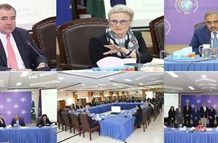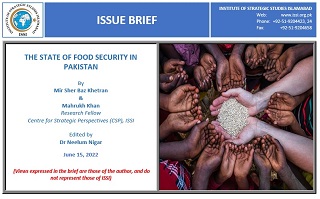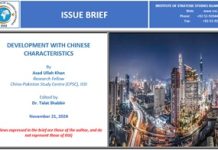On May 19, 2022, Foreign Minister of Pakistan Bilawal Bhutto-Zardari attended the United Nations conference on “Conflict and Food security” where he acknowledged that Pakistan has a real threat of food insecurity coupled with water insecurity, as well as energy security which has been exacerbated by recent geopolitical developments. He stressed that Pakistan is one of the most climate stressed countries at the moment like the rest of the developing world, and face the same existential threats of climate change COVID pandemic, and poverty making Pakistan not only food insecure but water and energy insecure. Distress could well be avoided by increasing the cultivable land mass besides effectively utilising the available land resource with the use of modern techniques to enhance growth and productivity.[1]
Globally, Pakistan is ranked 26th on the list of nations with high mortality rates principally because of undernourishment and malnourishment. But the problem is not just food unavailability or deprivation only but also includes food adulteration. The energy concentration of food dies down when the nutrients are either synthesised by chemicals or are inherently of degraded quality. According to WFP data, a staple adjusted nutritious diet is not available to around 70% of the population of Pakistan. Furthermore, about 20.5% of the population is undernourished with half of those being under the age of five years, causing stunted mental and physical growth.[2]Pakistan ranked 92 out of 116 nations in the Global Hunger Index (GHI) in 2021 scoring 24.7, categorising Pakistan’s level of hunger as ‘serious.’















